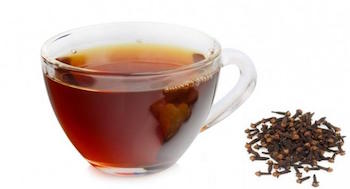Scientists are quickly discovering that some of the best cancer treatments available are right in our own kitchens. The overwhelmingly positive data from studies on turmeric, ginger, and many other anti-cancer foods have encouraged researchers to explore the therapeutic potential of other functional foods.
It turns out that, across the board, cancer-fighting foods offer a safer and more sophisticated way to treat cancer. They target cancer stem cells (the “mother” cells that control the growth and spread of cancerous tumors), fight cancer on a genetic level, and leave healthy cells unharmed (if anything, the body’s cells are strengthened because of these foods’ potent anti-inflammatory, antioxidant, and immune-boosting properties).
Conventional approaches like chemotherapy and radiation therapy can’t claim any of these virtues—while they do successfully kill cancer cells, they decimate the body in the process, killing healthy cells and severely taxing the immune system. They also fail to target CSC’s or to affect cancer genetically, which leads to a much greater chance of recurrence.
As more and more doctors begin to think of chemo and radiation as barbaric, outdated, and inefficient treatment methods, the medical community (or at least the natural health community) is beginning to turn toward functional foods as a viable alternative.
One study shows that cloves might be the next cancer-curing food to watch—and as you may have suspected, it boasts all the healing subtleties of the foods mentioned above.
Cloves: the new cancer-healing food on the block
Cloves, the dried flowers of a plant named Syzygium aromaticum L, are a well-known and widely used spice. For some time, researchers have suspected its potential as an anti-cancer food because of its rich profile of medicinal compounds, most notably eugenol and oleanolic acid—the latter of which had already been shown to have anti-cancer activity.[1]
In recent years, this theory was finally put to the test—and cloves passed with flying colors. Researchers at the University of Minnesota, the University of Pittsburg, and China’s Capital Medical University reported that an ethanol clove extract proved remarkably effective against a variety of cancers. It successfully halted the growth and spread of ovarian cancer, cervical cancer, colon cancer, liver cancer, breast cancer, and even hard-to-treat varieties like pancreatic cancer.[2]
Cloves’ effect on the spread of cancer cells is also dose-dependent, meaning that the more cloves are used, the more effectively cancer is halted. This is incredibly important for demonstrating that cloves have a direct, causative effect upon cancer cells, as opposed to being simply an indirect, supporting mechanism.
For example, some healthy foods may help slow the spread of cancer by providing the body with essential nutrients, lowering inflammation, and scavenging free radicals, but this doesn’t mean that they directly affect cancer cells. Health foods are all well and good, but researchers are on the hunt for truly functional foods—that is, foods containing compounds that act as a potent and direct measure against cancer.
In true functional food fashion, cloves exhibit remarkable intelligence in the way that they fight cancer. They leave healthy cells completely unharmed, interrupt the mitochondrial activity of cancer cells, and even alter the genes that control the way cancer cells proliferate and grow.
While the researchers credit eugenol and oleanolic acid for these successes, it’s important to remember that a full-spectrum extract was used in all the experiments mentioned above. While a small number of compounds may display the medical “functionality” sought by doctors, it’s entirely possible that their efficacy relies on the plant’s entire potpourri of perfectly balanced constituents.
This is certainly the case with other functional foods, such as turmeric—curcumin is strongly anti-cancer, but it’s not easily absorbed by the body unless combined with tumerones and other compounds found naturally in full-spectrum turmeric extracts.
The trust that medicine is beginning to place in functional foods is heartening, but mainstream doctors and researchers will need to curb their obsession for isolated, medicinal compounds. Healing foods contain compounds in perfect relationship to one another—researchers should learn this lesson quickly, lest they waste a good deal of time tinkering with isolates that fail to bring about the results offered by whole plants.
Spice up your health
Cloves’ status as a healing food isn’t a new phenomenon. They have been used as a versatile healing tool for thousands of years by many different cultures, including those of China, Japan, India, and Indonesia.
Traditionally, they’ve been used to treat infections caused by bacteria, viruses, and fungi (no pharmaceutical is so multi-talented), to alleviate pain (especially tooth pain), and to address disorders of the stomach, spleen, and kidneys. And now, thanks to the studies mentioned above, practitioners can add cancer to this spice’s already impressive healing resume.
Just remember that treating cancer with clove extracts and clove essential oil should be done under a doctor’s supervision. Cloves (and other functional foods, for that matter) are powerful medicine, despite the fact that they don’t come in fancy prescription bottles.
And whether you’re seeking an effective alternative cancer treatment or just want to keep your health optimized, you can always add cloves to your food for a healing boost. They add a delicious warmth to a wide variety of preparations, including homemade tea blends, hot winter drinks, curries and sauces, soups, and baked goods (just go easy on the sugar).
Warming Clove Tea With Hints
of Cinnamon & Nutmeg
Clove tea is an excellent way to get the benefits of cloves on a daily basis! This tea is very warming, and you can really taste this spice, and the subtle hints of nutmeg and cinnamon. The lemon juice gives it a nice slight tang.
Recipe For Clove Tea
Ingredients: (makes 2 cups)
2 cups of water
1 teaspoon whole cloves
½ teaspoon grated nutmeg
½ teaspoon ground cinnamon
Few drops of lemon juice
Agave nectar or honey (optional)
Directions:
- Lightly crush the cloves and put into a saucepan with the nutmeg and cinnamon
- Add a cup of water and heat to boiling. Turn the heat down and simmer for 2-3 minutes
- Turn off the heat and let steep (sit) for 5 minutes
- Pour through a tea strainer and, if using, add the lemon juice or honey or both.
Drink and enjoy!
References
[1] http://onlinelibrary.wiley.com/doi/10.1002/jat.2725/abstract
[2] http://www.ingentaconnect.com/content/cog/or/2013/00000021/00000005/art00003







